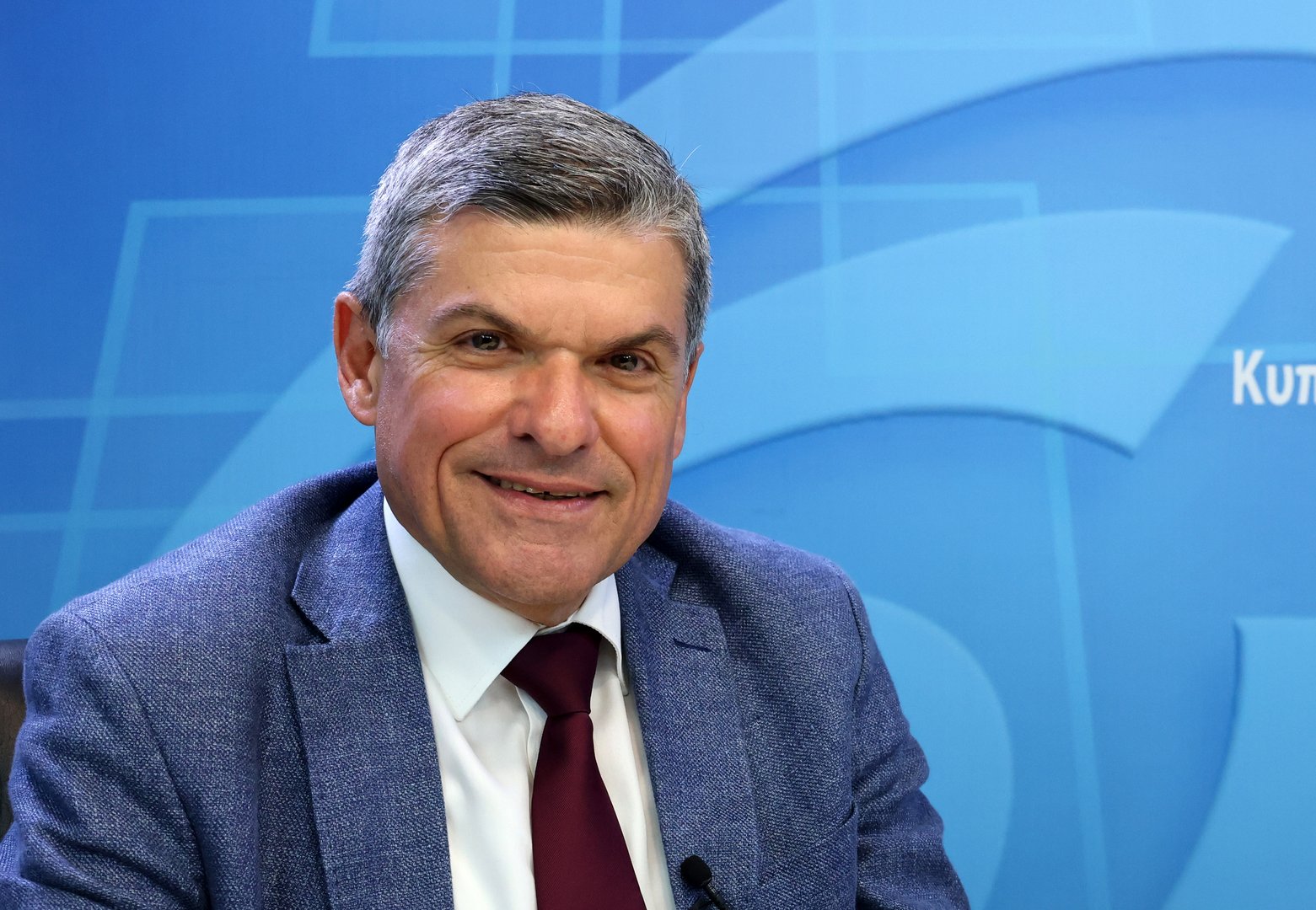Energy Minister George Papanastasiou on Tuesday said there has been a wave of interest in the proposed Israel-Cyprus pipeline that could offer cheap natural gas for electricity production on the island.
In an interview with the Cyprus News Agency, he said at the moment, Cyprus is throwing green energy to the wayside on a daily basis, despite the fact that is more affordable and better for the environment.
Nicosia is set to hold a workshop on May 29 aimed to pave the way for decision-making for Cyprus’ strategy on natural gas.
“There are indications of serious interest for all parts of the food chain connected to natural gas,” Papanastasiou said.
This includes tech companies, firms with access to natural gas, businesses that want to be more involved in natural gas and companies that know how to build liquefaction plants, as well businesses interested in taking LNG on board ships and placing it on the markets.
The workshop is connected to the Israel-Cyprus pipeline, he added.
According to Papanastasiou, the government had proposed to Israel a pipeline between the two as part of its efforts find ways to import natural gas into Cyprus at a low cost, taking into account that conventional electricity production is very expensive.
Importing natural gas through the LNG terminal currently being constructed at Vassiliko will not reap any energy cost savings, as LNG is currently priced highly across Europe due to high demand, he specified.
However, because this project – announced in Israel on Sunday – means a lot of infrastructure which cannot be paid off with the quantity that Cyprus needs for electricity production should be used for other purposes such as liquefaction of natural gas for export to Europe or other Asian markets.
Papanastasiou stressed the goal is that the pipeline and infrastructure get funding from investors such as extraction companies in the EEZ’s of Cyprus and Israel, companies interested only in pipeline construction or companies interested in liquefaction and LNG purchase for export purposes.
“This whole supply chain will have interested parties who are ready to put in the capital so that this infrastructure system can be set up,” he said. He added that these companies are ready to invest because of the high price of LNG, noting that there is an opportunity now which will last for many more years which Cyprus should take advantage of.
The minister highlighted that the pipeline between Israel and Cyprus “is not as easy as it sounds” as it will have to go through mountains and submarine canyons, which will have to be protected against spillage.
Due to the high cost of LNG, the cost of the sought-out infrastructure can be justified, he added.
Papanastasiou stressed it was not necessary to wait for the Yishai dispute to be resolved to discuss other infrastructure. The latest update on the dispute is that Cyprus has responded to Israel’s comments on the matter. Discussions are ongoing.
He also added VAT reductions on fuel are a temporary measure which is burdening state coffers.
Where green energy is concerned, the minister noted the government is “slightly more” focused on natural gas at the moment as it is a transitionary period and because there is a ‘natural wealth’ in Cyprus’ EEZ that should be utilised.
However, Cyprus’ electricity networks are “ancient” and cannot handle importing renewable energy sources. As such, new smart networks need to be created to meet demand.
“At this moment in time, this network does not exist. As a result, we reject green energy on a daily basis. Especially in a period before the summer or shortly after the summer, green energy is seriously discarded.”
Ignoring green energy thus becomes an easy solution however that does not make it right, Papanastasiou stressed.
As a result, this is something the government seeks to rectify with Cyprus’ energy regulatory authority (Cera) has already received applications from interested parties seeking to invest in operating batteries for green energy.
Small batteries can be used for homes and funding schemes are set to be announced in the next few months.
Currently, households send the energy to the network for free but take it back at a cost, he added.







Click here to change your cookie preferences